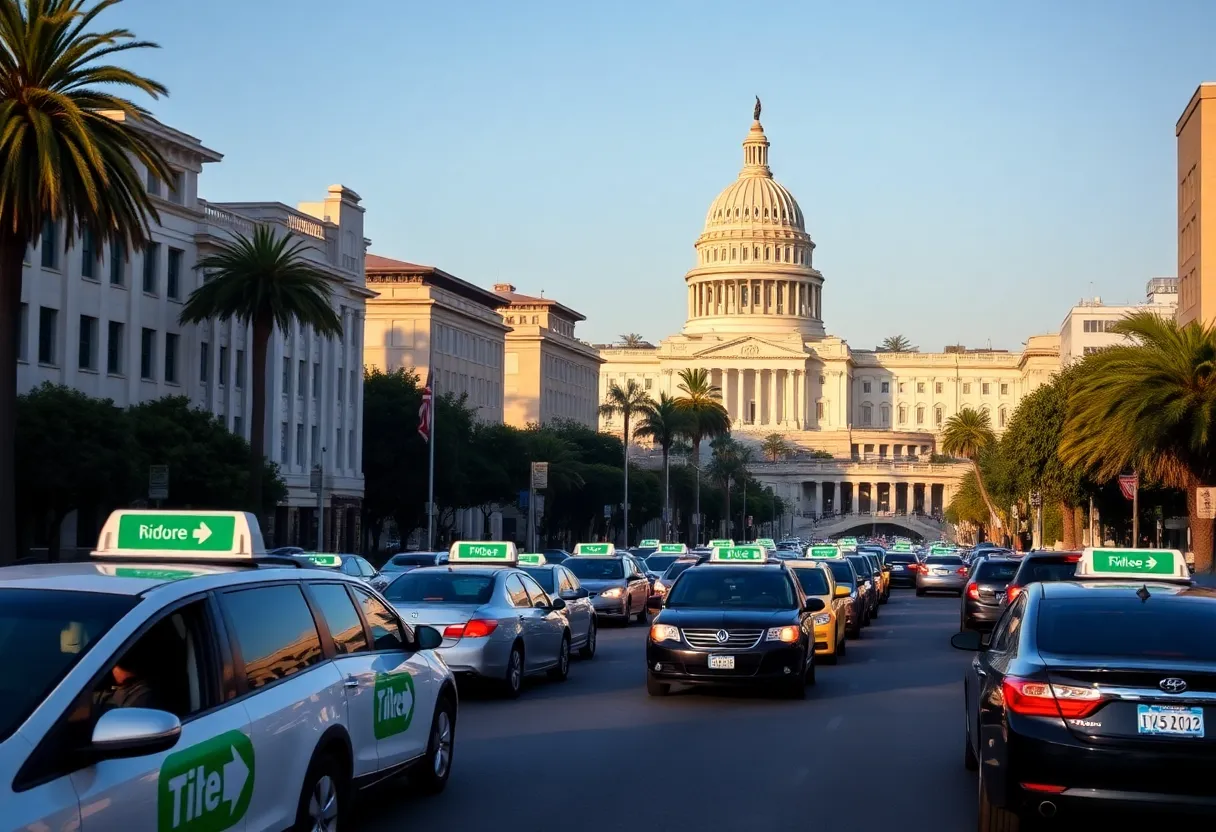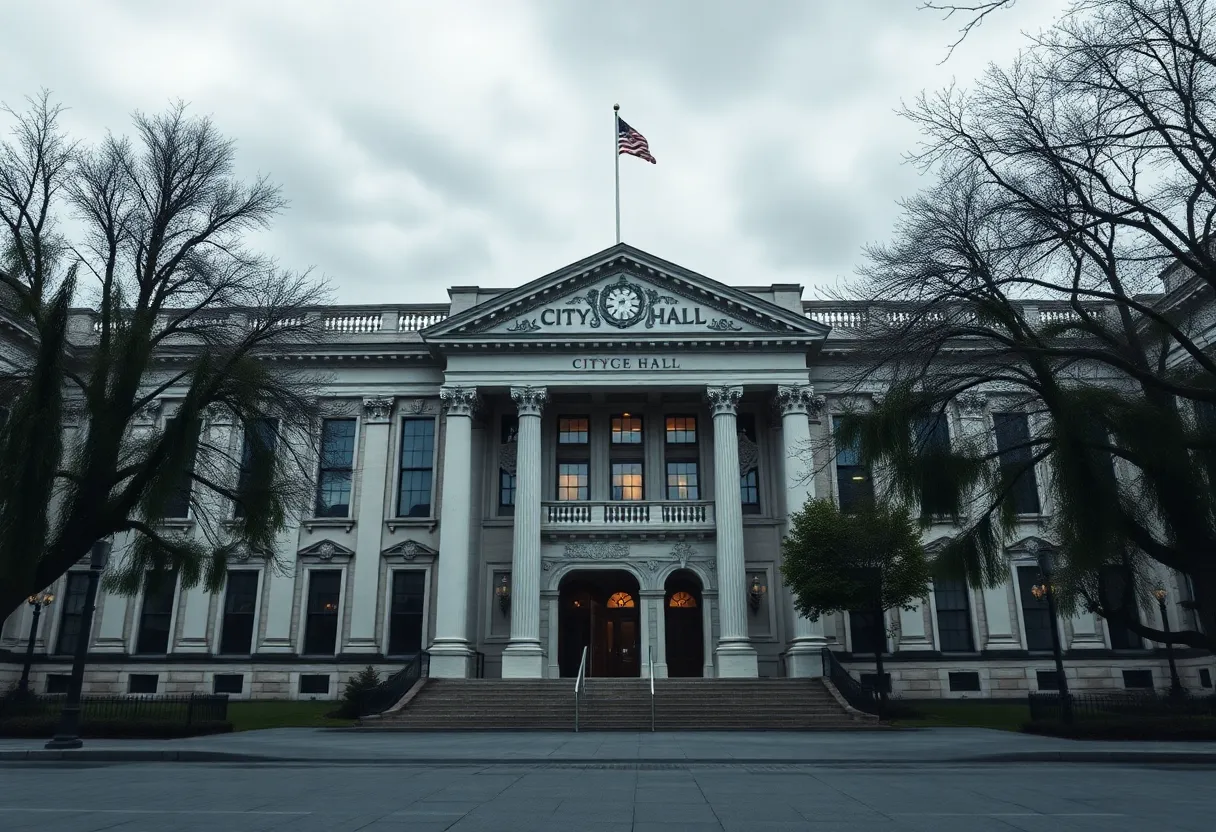California, October 5, 2025
News Summary
California Governor Gavin Newsom has signed Assembly Bill 1340, allowing rideshare drivers to unionize and negotiate contracts as independent contractors. This legislation affects over 800,000 drivers and mandates that companies like Uber and Lyft negotiate in good faith with driver unions. While it marks a significant step for collective bargaining rights, critics express concerns about its limitations and the safety implications of reduced insurance coverage for underinsured drivers.
California Governor Gavin Newsom signed Assembly Bill 1340 into law, allowing rideshare drivers to form unions and negotiate contracts while retaining their status as independent contractors. This landmark legislation aims to benefit over 800,000 rideshare drivers in the state, marking one of the largest expansions of private sector collective bargaining rights in California’s history.
The new law mandates that app-based transportation companies, such as Lyft and Uber, negotiate in good faith with the newly-formed drivers’ unions. With this legislation, drivers can take significant steps towards collective bargaining for better pay and working conditions. However, it does not extend these unionization rights to other gig workers, such as food delivery drivers working for apps like DoorDash.
Assembly Bill 1340 provides a structured process for drivers to form a union. To petition for union representation, they need to gather signatures from at least 10% of active drivers. An election will follow if 30% of active drivers are signed up and more than one organization seeks to represent them. The term “active” drivers includes those who completed a median number of rides during the prior six-month period.
The law also alters insurance requirements for rideshare companies, reducing coverage for accidents involving underinsured drivers from $1 million to $60,000 per individual and from $1 million to $300,000 per accident. This change aims to alleviate some financial burdens on rideshare companies while raising questions among driver advocacy groups regarding its implications for safety and driver earnings.
While some drivers, such as Jason Munderloh, have welcomed the law as a positive development for collective bargaining rights, concerns remain regarding certain potential pitfalls. Issues include the possible influence of algorithmic pay changes on drivers’ earnings during negotiations. Lyft’s director of public policy has characterized the legislation as a victory for both riders and drivers.
However, several experts and advocates believe the law might create a scenario described as a “union-in-name-only,” where true negotiation power could be limited. Concerns persist that the collective bargaining law may not be robust enough to provide fair contracts for drivers. Moreover, critics emphasize that protections for workers during collective actions, such as strikes, have not been guaranteed, and the legislation does not require companies to disclose wage data.
This law reflects a broader national dialogue regarding workers’ rights in the gig economy, spotlighting the ongoing need for safety enhancements and improved pay for rideshare drivers. Despite its shortcomings in addressing all original objectives related to driver employment status, some lawmakers maintain that the law is progress towards empowering drivers in California.
Furthermore, the non-traditional work environment for rideshare drivers complicates their ability to organize, as it lacks designated meeting places for discussions and mobilizations.
Key Features of Assembly Bill 1340
- Allows rideshare drivers in California to unionize and negotiate contracts.
- Companies must negotiate in good faith with union representatives.
- Excludes other gig workers, such as food delivery drivers.
- Requires 10% of drivers to sign for union representation and 30% for certification.
- Reduces insurance requirements for underinsured drivers.
FAQ Section
What does Assembly Bill 1340 allow rideshare drivers to do?
Assembly Bill 1340 allows rideshare drivers to form unions and negotiate contracts while retaining their status as independent contractors.
Who will benefit from the new unionization rights?
Over 800,000 rideshare drivers in California will benefit from the new unionization rights.
What companies are affected by this law?
The law mandates app-based transportation companies, such as Lyft and Uber, to negotiate in good faith with the newly-formed drivers’ unions.
What is the process for drivers to form a union?
Drivers need signatures from at least 10% of active drivers to petition for union representation, and once 30% of active drivers are signed up, they can petition for union certification.
Does the law extend to other gig workers?
No, the legislation does not extend to other gig workers, such as food delivery drivers working for apps like DoorDash.
What changes were made to insurance requirements for rideshare companies?
The law reduces coverage for accidents involving underinsured drivers from $1 million to $60,000 per individual and $300,000 per accident.
Chart of Key Features of Assembly Bill 1340
| Feature | Details |
|---|---|
| Unionization | Allows rideshare drivers to form unions and negotiate contracts. |
| Applicable Companies | Includes Lyft and Uber but excludes other gig workers. |
| Petition Process | Requires 10% of drivers for representation and 30% for certification. |
| Insurance Requirements | Reduces coverage for underinsured drivers from $1 million to $60,000 individual and $300,000 per accident. |
Deeper Dive: News & Info About This Topic
- CBS News: California Newsom Signs Rideshare Unionize Bill
- Wikipedia: Collective bargaining
- Los Angeles Times: New Law Signed by Newsom Allows Rideshare Drivers to Unionize
- Google Search: California rideshare unionization
- AP News: Lyft, Uber Rideshare Driver Union California
- Encyclopedia Britannica: Trade union
- LAist: California Gives Uber, Lyft Drivers Collective Bargaining Rights
- Google Search: rideshare drivers rights
- Politico: California Uber, Lyft Union
- Google News: rideshare unionization

Author: Anaheim Staff Writer
The Anaheim Staff Writer represents the experienced team at HEREAnaheim.com, your go-to source for actionable local news and information in Anaheim, Orange County, and beyond. Specializing in "news you can use," we cover essential topics like product reviews for personal and business needs, local business directories, politics, real estate trends, neighborhood insights, and state news affecting the area—with deep expertise drawn from years of dedicated reporting and strong community input, including local press releases and business updates. We deliver top reporting on high-value events such as major conventions at the Anaheim Convention Center, including NAMM and VidCon, exciting games at Angel Stadium and Honda Center, and developments at Disneyland Resort Our coverage extends to key organizations like the Anaheim Chamber of Commerce and Visit Anaheim, plus leading businesses in hospitality, entertainment, and innovation that power the local economy As part of the broader HERE network, including HERECostaMesa.com, HEREHuntingtonBeach.com, HERESantaAna.com, and HERELosAngeles.com, we provide comprehensive, credible insights into Southern California's dynamic landscape.




